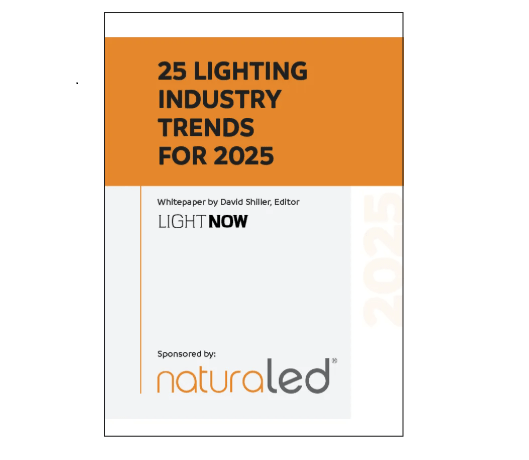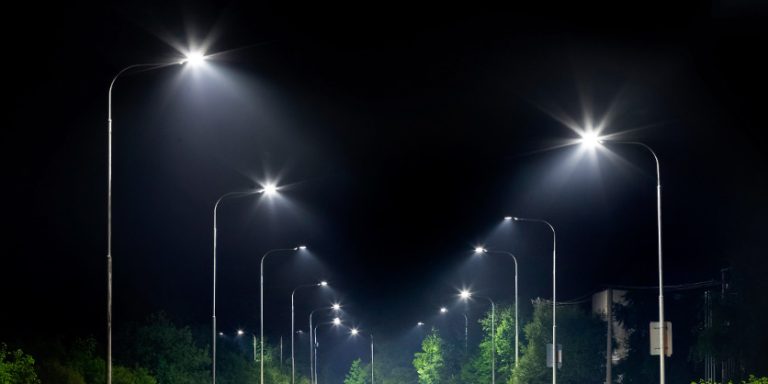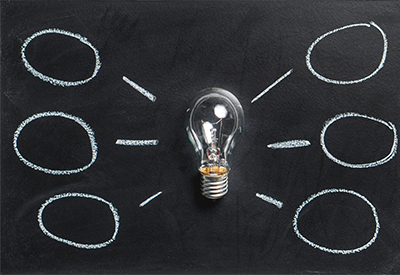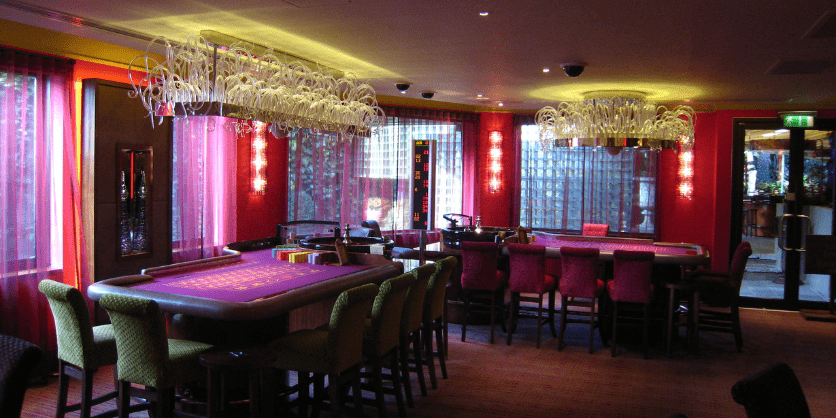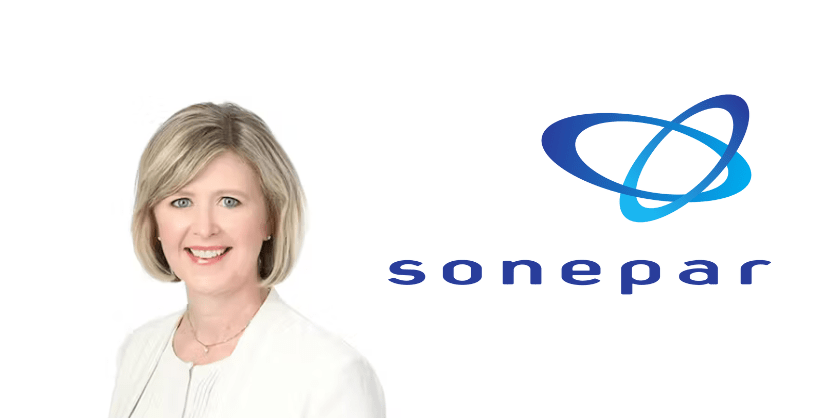25 Lighting Industry Trends for 2025: Part I

David Shiller, president of Lighting Solution Development, recently released his 25 projections for 2025, a comprehensive white paper detailing his thoughts on what will drive the lighting industry going forward. The highlights are presented here, but the full report in its entirety is available here for download.
Lighting industry innovation and market changes are increasingly being driven by forces outside of the lighting industry. Shiller looked at these trends to identify drivers of lighting demand, and what specifiers, contractors, distributors, and manufacturers should be considering, and sometimes pursuing, as they seek to satisfy customers and generate sales.
Examples include a global treaty to ban mercury containing lamps, electrification to combat climate change, and continuous breakthroughs in novel materials. It’s hard to deny that the lighting industry is getting pushed, pulled, and shoved, in a variety of directions.
Here’s Part 1 of his outlook for 2025.

1. LED UBIQUITY
LED socket saturation is now being driven by mercury lamp bans for commercial and industrial sectors, as well as US DOE General Service Lamps (GSL) standards for residential applications. These regulations increase residential-type lamp efficacy requirements to 83-195 lpW.


2. ELECTRIFICATION
Impacts of the push toward electrification include rising electricity rates, regulations like building performance standards, tightening building energy codes, government & utility incentives for electrification, and increasing ROI for legacy lighting retrofits. EV chargers and other renewable energy products are increasingly manufactured and sold by lighting manufacturers.
3. SSL TECHNOLOGY TRENDS
LED lighting products are evolving in a myriad of different directions. Here are a few examples:
- Increasing availability of hardwired, emergency TLEDs that meet UL 924. Naturaled, LEDVANCE, and Keystone are three examples of companies now offering these UL924-listed emergency TLEDs
- High output filament lamps are increasingly replacing HID lamps, as well as corn cobs
- Increasing use of non-isolated drivers due to their lower cost and higher efficacy
- Growth of cordless, rechargeable table and floor lamps, for both indoors and outdoors

4. SIMPLE OR NLC CONTROLS
Lighting controls have bi-furcated into very simple plug-n-play sensors that create luminaire level lighting controls (LLLC), or networked lighting control systems (NLC) that are feature rich and app-controlled. NLC continue to evolve. There is growth in wireless mesh NLCs, and a significant decline in
required gateways.
5. ADDITIONAL NETWORKED LIGHTING CONTROL (NLC) BENEFITS

Both energy and non-energy benefits of NLCs continue to expand:
- NLC-HVAC integration has enormous new potential to save significant HVAC energy.
- NLC can also aid with demand response.
- A recent Bluetooth NLC standard is improving interoperability.
6. NOVEL MATERIALS
Advances in novel materials are improving sustainability and performance. Here are a few examples:
- Research progress on downconverters that don’t use rare earth metals
- Fungus mycelium shades that look like concrete
- Alternative leathers are becoming commercially available
- Metamaterials more transparent than glass
- Nano film optics enable thin night vision lenses, as well as novel shaping of light distributions. 2D nanosheets being developed beyond graphene
- Seaweed bioplastic packaging is now available for lighting in time for California’s plastic packaging ban.
7. SMART(ER) BUILDING TECHNOLOGY
Artificial intelligence (AI) is increasing the capabilities of building management systems (BMS), building automation systems (BAS), and building information modeling systems (BIM). AI analyzes BIM data to prevent equipment breakdowns and extend equipment lifetimes.
8. BUILDING PERFORMANCE STANDARDS
Local and state building performance standards (BPS) are increasing mandates that large existing buildings reduce their energy use and/or carbon emissions. BPS drive energy and carbon benchmarking as well as deeper efficiency retrofits. Many municipalities with BPS are actively increasing their enforcement capabilities.
9. FIELD-SELECTABILITY EXPANDING
Field selectable wattage & CCT continues to expand. There are now luminaires that are 5-wattage & 5-CCT switchable, replacing up to 25 dedicated SKUs.
10. LIGHT + HEALTH
Circadian lighting is gradually gaining traction despite the lack of consensus on metrics. The American Lighting Association is launching a new program to certify and label residential circadian lighting. Beyond circadian lighting, research is advancing in the field of optogenetics that turn cellular activity on and off, with light.
11. M&A
There is increasing consolidation among distributors, reps, and manufacturers. If interest rates continue to decline, it will accelerate mergers & acquisitions in 2025.
12. Electricity costs are beginning to spike
Electricity rates are increasing quickly due to electrification, AI data centers, and reshoring of manufacturing. Retiring of fossil fuel generation and increasing renewable, intermittent generation is challenging grid operators. High electricity rates increase the ROI for lighting retrofits and NLC.

13. Indoor farming resurgence
Controlled environment agriculture (CEA) is making a comeback, after a collapse of many large vertical farm startups. However, greenhouses have significant advantages over vertical farms in the medium term, due to lower lighting energy costs.
Can’t wait for Part 2, click here to download the full report. Shiller also publishes the LightNowBlog.


